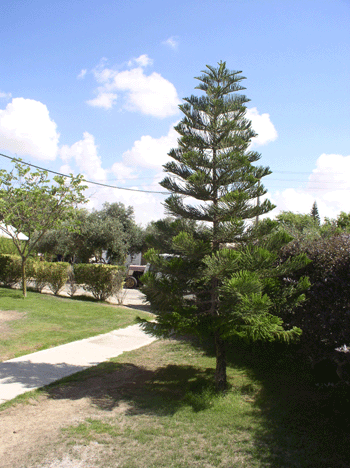

Arutz Sheva - IsraelNationalNews.com
July 6th, 2006
Former Chief of Staff: Sharon's Disengagement a Disaster
18:40 Jul 06, '06 / 10 Tammuz 5766
by Ezra HaLevi
Lt.-Gen. (ret.) Moshe Yaalon, IDF Chief of Staff until the implementation of the Gaza withdrawal, says that the entire Disengagement was conceived to save PM Sharon from legal troubles.
"The Disengagement was not the result of thorough strategic analysis, but the result of [then-Prime Minister Ariel Sharon's political distress," Yaalon said in an interview to be published in full in Haaretz this weekend. "It was a disengagement from reality and a disengagement from the truth."
Though such a claim has been made in the past, including by two prominent journalists Ofer Shelah and Raviv Drucker in their book Boomerang, this is the first time an official who was privy to the Sharon regime from the inside has cited such motives.
"The process created an illusionary hope," Yaalon said, "which was not planned strategically and practically. The Disengagement was mainly a media spin. Those who initiated it and lead it lacked the strategic, security, political and historical background. They were image counselors and spin doctors. These people put Israel into a virtual spin, disconnected from reality, using a media spin campaign which is imploding before our eyes.
"There is no doubt that the Disengagement failed," Yaalon said. The entire withdrawal and expulsion of 10,000 Jewish residents from Gaza and northern Samaria "was an internal Israeli game that ignored what's going on outside Israel."
The former Chief of Staff does not accept the argument that because polls have shown a broad section of the Israeli public wanted to leave Gaza, it was the right thing to do. "The Israeli public backed the Disengagement because it was blinded and drugged and because it really wanted to free itself from the burden of the conflict and divide the land. But we have to understand that although we are trying to shake the Palestinians off our backs, they refuse to get off our backs and stab us instead. We shouldn't fool ourselves. We live in the Middle East. We cannot barricade ourselves behind walls and fences. There is no such thing as unilateralism. Even when we refuse to talk with our neighbors there is interaction with them."
Strategic Mistake of the First Order
Yaalon has harsh criticism for those in the IDF and defense establishment that bought into the withdrawal as a viable strategic move. "The Disengagement was a strategic mistake of the first order," Yaalon said. "It brought about the Hamas victory. It emboldened terror groups. It has fueled the Palestinian struggle for years. It created a feeling among the Iranians, the Muslim Brotherhood, and al-Qaeda that Israel can be beaten, that Israel is a society of spider webs as Nasrallah said or a rotten tree as Ahmadinejad said. And therefore the Disengagement not only harmed us badly, but also harmed America's strategic war on terror in the region. It created a feeling among Muslim extremists that as it defeated the Soviets in Afghanistan, it defeated us in Gaza and it will defeat us in Tel Aviv. As such, as they destabilized a super power, they will destabilize the west by defeating Israel."
"The intellectual failure of the Disengagement is this," Yaalon said. "The fact that there is no one to speak to on the other side doesn't mean that we can ignore the other side and the effects of our actions upon them. The fact that even the Fatah leadership is not ready to recognize the State of Israel as a Jewish state, while it says it is committed to the Road Map peace plan, doesn't mean we can ignore the fact that pulling out under fire is perceived as surrender and encourages terror."
The former Chief of Staff says that Gaza has been allowed to become a staging ground for the worst of the terror groups taking part in the Global Jihad. "At the moment, our situation in Gaza is similar to southern Lebanon," he said. "Plenty of arms have been smuggled into Gaza: explosives, Katyusha rockets, anti-aircraft rockets, anti-tank rockets, Grad rockets. As a result of the manner in which the pullout was carried out, there are Hizbullah, Al-Qaeda and Iranian elements in the Gaza Strip."
"When the steps are withdrawal after withdrawal after withdrawal, we convey weakness," Yaalon concludes. "And he who conveys weakness in the Middle East is like a weak animal in nature: he comes under attack."

